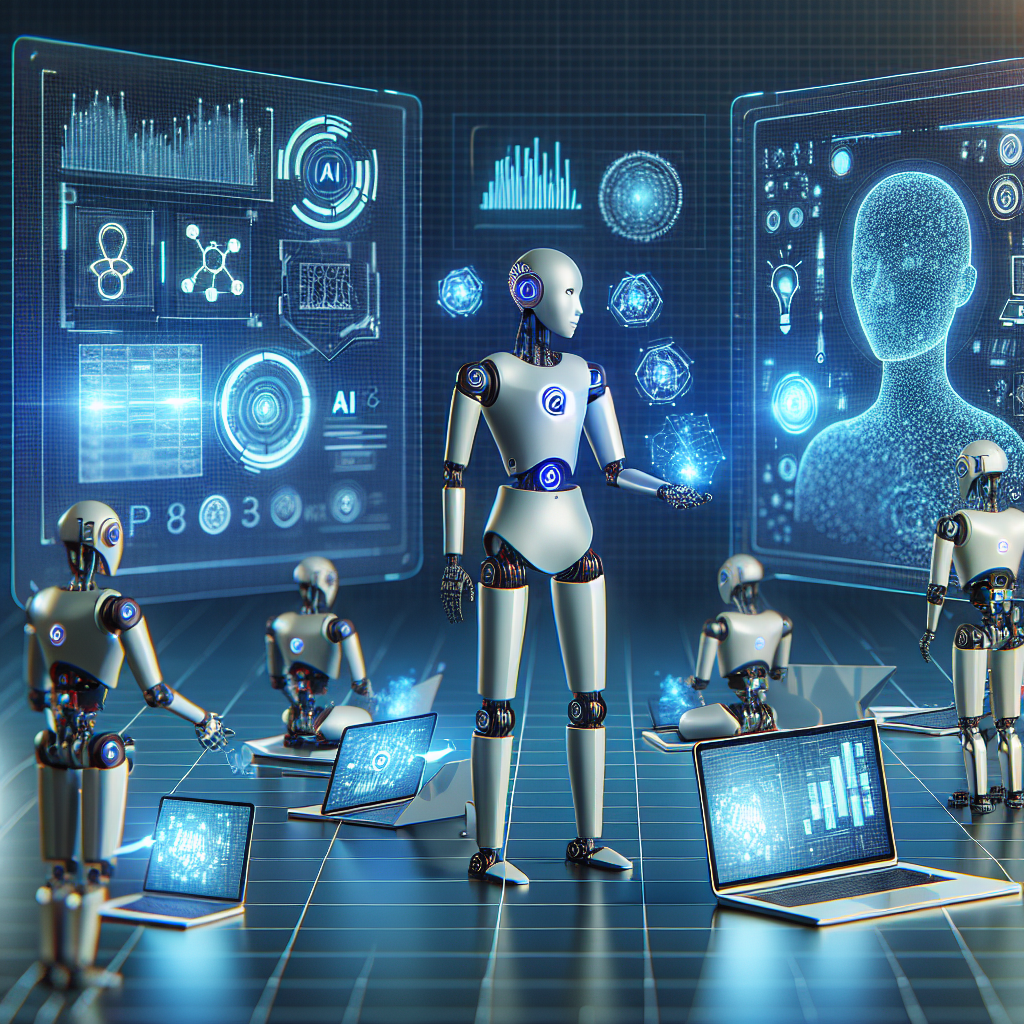Artificial Intelligence (AI) and Machine Learning are revolutionizing industries across the globe by providing unprecedented insights, improving efficiency, and enabling new ways of doing business. These technologies are transforming the way we work, live, and interact with the world. In this article, we will explore the benefits of AI and Machine Learning and how they are shaping the future of various industries.
Benefits of AI and Machine Learning:
1. Improved Decision Making:
AI and Machine Learning algorithms can analyze vast amounts of data in real-time to provide valuable insights that can help businesses make better decisions. These technologies can identify patterns, trends, and anomalies in data that humans may not be able to detect, leading to more informed decision-making.
2. Increased Efficiency:
AI and Machine Learning can automate repetitive tasks, freeing up human resources to focus on more strategic and creative activities. This leads to increased productivity and efficiency in various industries, such as manufacturing, healthcare, finance, and retail.
3. Personalization:
AI and Machine Learning enable businesses to personalize their products and services based on individual customer preferences and behaviors. This leads to a more tailored and engaging customer experience, which can help businesses increase customer loyalty and retention.
4. Predictive Analytics:
AI and Machine Learning can analyze historical data to predict future trends and outcomes. This capability is particularly valuable in industries such as finance, healthcare, and marketing, where accurate predictions can lead to significant cost savings and improved outcomes.
5. Fraud Detection:
AI and Machine Learning algorithms can detect fraudulent activities in real-time by analyzing patterns in transaction data. This helps businesses prevent financial losses and protect their customers from fraud.
6. Autonomous Vehicles:
AI and Machine Learning are powering the development of autonomous vehicles, which have the potential to revolutionize transportation and logistics. These technologies enable vehicles to navigate and operate safely without human intervention, leading to improved road safety and efficiency.
7. Healthcare:
AI and Machine Learning are transforming the healthcare industry by enabling more accurate diagnosis, personalized treatment plans, and predictive analytics for patient outcomes. These technologies can help healthcare providers deliver better care, reduce costs, and improve patient outcomes.
8. Natural Language Processing:
AI and Machine Learning algorithms can analyze and understand human language, enabling businesses to automate customer service, analyze sentiment in social media, and improve search engine results. This capability is particularly valuable for businesses looking to improve communication with their customers and stakeholders.
9. Supply Chain Optimization:
AI and Machine Learning can optimize supply chain operations by predicting demand, identifying bottlenecks, and optimizing inventory levels. These technologies enable businesses to reduce costs, improve efficiency, and deliver products to customers faster.
10. Environmental Impact:
AI and Machine Learning can help businesses reduce their environmental impact by optimizing energy consumption, reducing waste, and improving sustainability practices. These technologies enable businesses to make data-driven decisions that support environmental conservation efforts.
Frequently Asked Questions (FAQs):
Q: What is the difference between AI and Machine Learning?
A: Artificial Intelligence (AI) is a broader concept that encompasses the development of intelligent machines that can perform tasks that typically require human intelligence. Machine Learning is a subset of AI that focuses on developing algorithms that enable machines to learn from data and improve their performance over time.
Q: How can businesses implement AI and Machine Learning?
A: Businesses can implement AI and Machine Learning by investing in the right technology, hiring skilled data scientists and engineers, and developing a data strategy that enables them to collect, analyze, and leverage data effectively.
Q: What are the ethical implications of AI and Machine Learning?
A: AI and Machine Learning raise ethical concerns related to privacy, bias, and accountability. Businesses need to ensure that their use of these technologies is transparent, fair, and in compliance with regulations to avoid negative consequences.
Q: How can AI and Machine Learning benefit small businesses?
A: AI and Machine Learning can benefit small businesses by enabling them to automate repetitive tasks, personalize their products and services, and make data-driven decisions that lead to better outcomes. These technologies can help small businesses compete with larger competitors and grow their operations.
Q: What are the limitations of AI and Machine Learning?
A: AI and Machine Learning have limitations related to data quality, bias, interpretability, and scalability. Businesses need to be aware of these limitations and take steps to address them to maximize the benefits of these technologies.
In conclusion, AI and Machine Learning are transforming industries and enabling businesses to unlock new opportunities, improve efficiency, and deliver better outcomes for customers. These technologies have the potential to revolutionize the way we work, live, and interact with the world, leading to a more connected and intelligent future. Businesses that embrace AI and Machine Learning will be better positioned to thrive in an increasingly competitive and data-driven world.

